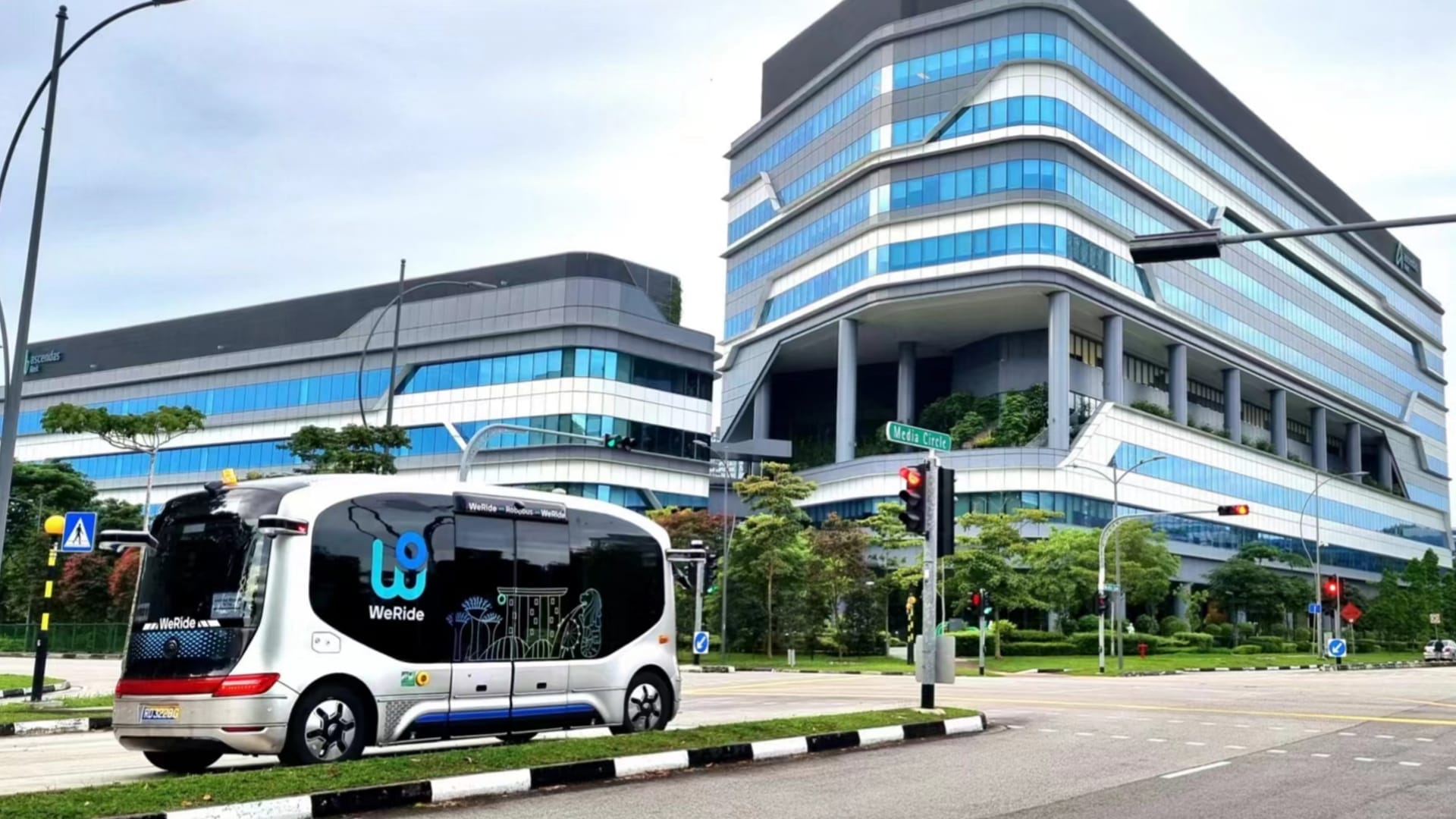WeRide’s autonomous bus trials in Singapore: A new chapter in global expansion
WeRide secures key licenses in Singapore for autonomous bus testing, marking a pivotal moment in its global expansion journey.

China’s foray into the autonomous vehicle (AV) sector is witnessing a new phase, with key players like WeRide looking beyond their domestic market. This shift is emblematic of China’s broader ambition to lead in the global AV space.
Table Of Content
Expanding horizons: WeRide’s Singapore venture
Recently, WeRide announced a significant milestone in its international journey. The company has secured two critical licenses, M1 and T1, from Singapore’s Land Transport Authority (LTA). These licenses are a green light for WeRide to test its self-driving buses on a larger scale in public areas, including the tech-forward One North cluster and the National University of Singapore.
This advancement in Singapore follows WeRide’s successful licensing for various AVs, including robotaxis, in the United Arab Emirates. The company also possesses various levels of AV permits in the United States and China.
Strategic shift: From robotaxis to autonomous buses
In a notable strategy shift, Chinese AV companies, including WeRide, are moving their focus from the costly development of Level 4 robotaxis to more commercially viable options. WeRide, for example, is investing in autonomous buses, which operate on fixed routes at lower speeds and face fewer unpredictable traffic situations. This contrasts with firms like Deeproute, which are deepening ties with car manufacturers.
Singapore’s AV ecosystem
Singapore is a densely populated city-state with a keen interest in AV technology, primarily to address its land and workforce constraints. Since 2014, the city has embarked on integrating AVs, starting with controlled environment testing. Now, entering the second phase, Singapore is set to allow AVs for passenger and utility use in specific areas, attracting global AV players like the Aptiv-Hyundai joint venture, Motional.
One of the licenses WeRide obtained, the M1, permits testing on open roads in particular areas with the safety operators in full control.
Building alliances and market presence
WeRide’s entry into foreign markets involves careful planning and building relationships with regulators and business partners. It has amassed over US$1.4 billion in funding from investors, including Singapore’s major public transport operator, SMRT and local investment firm K3 Ventures.
Recently, WeRide signed strategic agreements with Woodlands Transport Services and EZ Buzz, significant players in Singapore’s transport sector. These moves position WeRide as a front-runner among Chinese tech firms expanding into Singapore. The company’s prominence was highlighted when Singapore’s Prime Minister Lee Hsien Loong took a ride in a WeRide robotaxi during his visit to China. WeRide’s founder and CEO, Tony Han, underscored Singapore’s critical role as a regional centre for its Asia-Pacific market expansion.
As one of China’s most funded AV companies, valued at US$5.1 billion, WeRide is confidently moving forward, having confidentially filed for a US public listing this year after a successful Series D extension round.
















